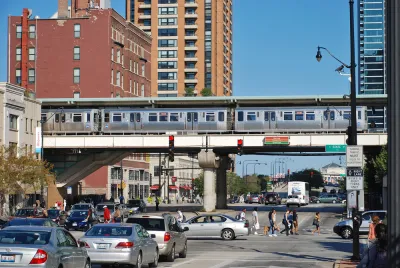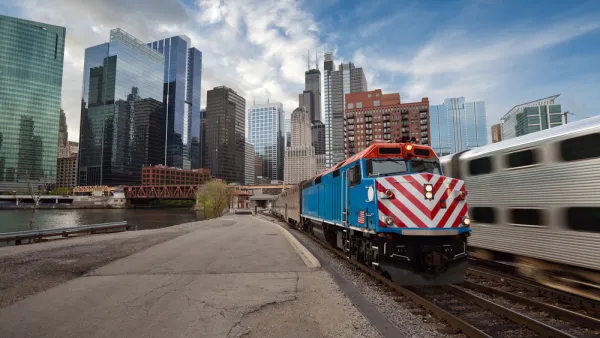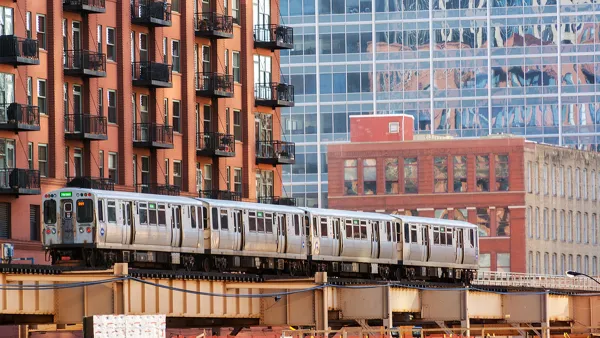The first-of-it’s kind study found that without public transit, Chicago would lose an estimated $35 billion in economic activity annually and the quality of life of residents, particularly women and low-income groups, would take a major hit.

An article from Eureka Alert outlines a new study by the U.S. Department of Energy’s Argonne National Laboratory and MIT that looks at the role the public transit system plays in Chicago — and what would happen if it were eliminated. “The research, presented at a Chicago Transit Authority board meeting in May, identifies major consequences, including increased vehicle congestion, reduced economic activity and a disproportionate impact on underserved communities and minorities,” the article reads.
Researchers say the study is the first they know of to quantify transit value across multiple metrics, which they achieved by modeling a day in Chicago without public transit using Argonne’s POLARIS transportation simulation tool. In addition, “The study assumed that households who did not currently own a car as well as those who owned only one would need to purchase additional vehicles, leading to a 30% increase in vehicle car ownership and causing an economic burden on those households.” They found travel times would increase from around 25 to 34 minutes and speeds would decrease by 14 percent in both urban and suburban areas. Results also revealed reduced access to opportunities would lead people — in particular women and low-income groups — to simply cancel activities, around two million activities daily, which would result in an estimated $35 billion annual loss in economic activity. Overall, the study found that for every $1 invested in transit, $13 in economic activity is created, in addition to travel time savings, increased access to opportunities, and lower vehicle emissions and the resulting health benefits.
The analysis comes as CTA, like many major transit networks across the city after the pandemic, faces major budgetary and operational challenges. Local news outlet WGN9 recently reported ridership has only recovered by 60 percent compared to prepandemic levels, driven by severe service cuts, reliability issues, and staffing shortages. With the expiration of federal COVD relief, the region’s transportation agencies — CTA, Pace, and Metra — face a projected 2026 budget gap of $730 million if additional revenue streams are not secured.
FULL STORY: Argonne-led study highlights public transit’s critical role across Chicago

Analysis: Cybertruck Fatality Rate Far Exceeds That of Ford Pinto
The Tesla Cybertruck was recalled seven times last year.

National Parks Layoffs Will Cause Communities to Lose Billions
Thousands of essential park workers were laid off this week, just before the busy spring break season.

Retro-silient?: America’s First “Eco-burb,” The Woodlands Turns 50
A master-planned community north of Houston offers lessons on green infrastructure and resilient design, but falls short of its founder’s lofty affordability and walkability goals.

Test News Post 1
This is a summary

Analysis: Cybertruck Fatality Rate Far Exceeds That of Ford Pinto
The Tesla Cybertruck was recalled seven times last year.

Test News Headline 46
Test for the image on the front page.
Urban Design for Planners 1: Software Tools
This six-course series explores essential urban design concepts using open source software and equips planners with the tools they need to participate fully in the urban design process.
Planning for Universal Design
Learn the tools for implementing Universal Design in planning regulations.
EMC Planning Group, Inc.
Planetizen
Planetizen
Mpact (formerly Rail~Volution)
Great Falls Development Authority, Inc.
HUDs Office of Policy Development and Research
NYU Wagner Graduate School of Public Service



























